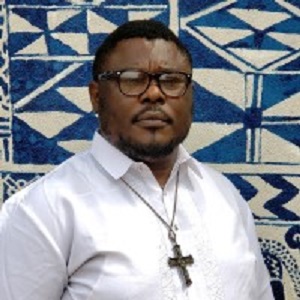A Cameroonian journalist and radio enthusiast, Gustav Ebai has identified ways radio stations can be used as instruments of peace in Africa.
He shared his thoughts at the monthly meeting of the Journalists for Christ International Outreach on Saturday, February 18.
The event which took place on the zoom platform monitored by Church Times was to celebrate February 13 World Radio Day. Ebai spoke on the topic, Radio and Peace.
He noted that the definition of peace in the Western world is quite different from what Africans call peace
According to him, “Peace for the African man is the manifestation of the kind of life he wants. And this sort of correlates with what Jesus says in John 10 v10: I have come to give you life in abundance. It is that life in its fullness that means peace for many Africans.”
Ownership is critical
Ebai who is also an executive of the Africa Region of the World Association for Christian Communication said, for Radio to bring peace the issue of ownership is critical. “It is critical because it is the owner that determines the content.
“Many of the radio stations in Africa are established with an agenda in mind. So, if the society must experience peace, it has to look into the ownership of the radio stations because the radio has a great role to play in building peace in the community”
Beyond ownership, Ebai said Radio stations must put the communities where they are located in mind. “This is very critical to the peace of the community. Radio stations must identify the needs of the community and project them,” he said.
While noting that Radio. as a medium affords people in the community to have a sense of belonging, he said, “The radio station should be sensitive to the community. It must project the needs in that community and put on air programmes that will engender peace and development.”
Platform of education
The radio station according to him should be a platform where people can be educated on what they can do to make their lives better. “When people experience development they will have no time to cause trouble.
“Most of the unrest we see in Africa is because people are agitated. But when they are educated on what they can do to make their lives better, they will not lend themselves as instruments of trouble. A radio station that answers the need of the people helps to a large extent to bring development in the community and in the long run, helps to bring peace.”
Ebai debunked the age-long notion that peace guarantees development. He said, “In actual fact, it is development that guarantees peace for the African man. When people see good roads, they have electricity, they have water and they are able to have their basic needs, they will be peaceful.”
Radio must be community-oriented
He counselled further that radio stations must always think about what the people want and how they can meet their information needs. “Many in the rural areas rely heavily on the radio for their information.
“So, a radio station must incorporate for instance programmes that will address the needs of the farmers, the artisans and all those who help to build the economy.
“They must also try as much as possible to give information on what can make people’s lives better. By so doing, they would have contributed greatly to the peace in the land.:
Ebai who is widely travelled and also had worked with NGOs on peace projects said the radio should be 90 per cent about the community and 10 per cent about the owners.
“The radio must stand for the right of the community and for the good of the community. They must play the role of educating the people.”
He disclosed that in Cameroon, the government gives yearly subventions to privately owned radio stations because it knows the strategic role of the medium.
“To a large extent, the subvention helps to forestall a situation where the stations are influenced negatively by people with ulterior motives to foment trouble,” he said.
Niche radio stations
On specialised radio stations, he said, ‘There are radio stations that are specialised in broadcasting just music for instance. Such stations must bear in mind that they are located within communities.
“Despite being a niche, a radio house must not lose sight of its community responsibility. If there is a fire incident for instance in the marketplace in the community, such a station must stop its programme and announce it to the people so that there will be awareness. The point is that we need to think of the community we are located in and serve their interest.”
Read also: CEO of Soyinka centre counsels journalists on how to excel: https://churchtimesnigeria.net/ceo-of-soyinka-centre-counsels-journalists-on-how-to-excel/
Earlier in his address, Ebai had noted that the more the radio is neglected the more it is vulnerable to manipulation adding that it has the ability to make people move away from their problems. “The radio has the capacity for group therapy.
“It has the potential to douse a crisis situation. It gives people the opportunity to be heard. It enhances the imagination of the people unlike other forms of media that present people with images that rob people of their creative capacity and ability to imagine.”
Cheapest news medium
Despite being unable to reach the deaf and dumb in society, Ebai said Radio is still the cheapest and most effective means of disseminating information.
While responding to a question by the President of JFC, Mr Lekan Otufodunrin, Ebai encouraged religious organisations to invest in radio so as to be able to give direction to society and save it from the hands of people with ungodly agenda.
Vice President of JFC, Mrs Ugonma Cokey who moderated the event stressed the need for government to support media houses with grants just as it is being done in Cameroon


